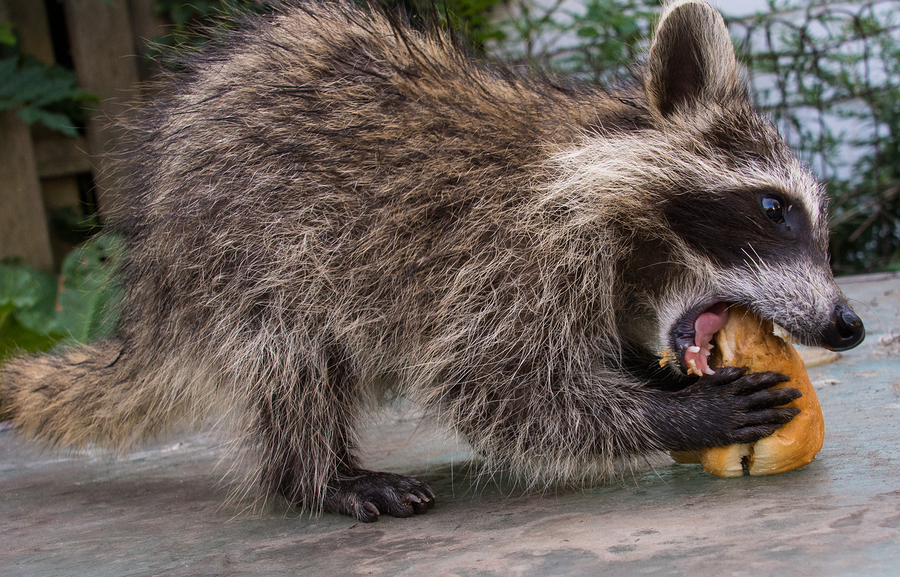If you have raccoons looming around your property at night, you might be wondering why. Well, raccoons are on a forever hunt for two things: food and shelter. Mostly, they are in search of food, which they will find using their high level of intelligence, dexterous paws, and acute memory capacities. But if they come across a place that suits their sheltering needs better than the nest they are living in, they will take advantage of that opportunity as well. So, if you have any type of food source on your property, it is likely the reason why you are having nightly raccoon visitors.
But what do raccoons eat? Will they eat your pet cat or dog? Will they eat other types of animals? Continue reading to learn what the common raccoon diet consists of and put your concerns to rest.

Common Raccoon Diet
Raccoons are omnivores, just like humans. They eat meat, fruit, vegetables, and many other food groups. They basically eat almost anything. In metropolitan and urban areas, like our neighborhoods and towns, raccoons will mostly eat a diet of human garbage. They are quite known as dumpster divers and trashcan pillagers, making raccoons a common nuisance in the city and suburban locales. In the wild, raccoons mostly consume acorns, corn, insects, fish, and eggs. As for animals, they will eat hatchlings, small amphibians, and small birds.
So yes, raccoons do eat other animals at times, but they will not eat a cat or dog.
Nuisance Raccoons and Your Pets
Although raccoons are not after your cat or dog for their next meal, there is a chance that a raccoon will attack a curious, aggressive, or over-friendly cat or dog. For this reason, it is strongly encouraged to keep your pets properly vaccinated according to your vet’s recommendation. Furthermore, if you live in an area with known raccoon activity, avoid letting your pets outside at night unsupervised. This is when raccoons are active, and if approached or threatened, will bite or scratch a dog or cat. The rabies virus is often carried by raccoons, and is transmitted through blood and saliva, so you do not want your pet bitten or scratched from a raccoon that could possibly be infected.
How to Get Rid of Raccoons
The best way you can stop raccoons from trespassing onto your property is to remove all the things that are attracting them in the first place. If your property is no longer a source of food, water, or shelter, they will move onto other properties that provide these amenities. Seal up or remove these sources of food, water, and shelter: trashcans (always take them out on the morning of garbage collection day), pet food, gardens, bird baths, squirrel feeders, compost piles, log piles, hollowed trees, junk cars, and unlocked barns or sheds.
Indianapolis Raccoon Removal and Control Service
Call 317-535-4605 for prompt and professional Indianapolis raccoon removal and control you can trust. We are DNR licensed and experienced wildlife control specialists who only use safe and humane methods to exclude and extract raccoons. We also offer 24 hour emergency service, raccoon cleanup and restoration, inspections, and raccoon-proofing. Call 317-535-4605 to request a free estimate, today.

